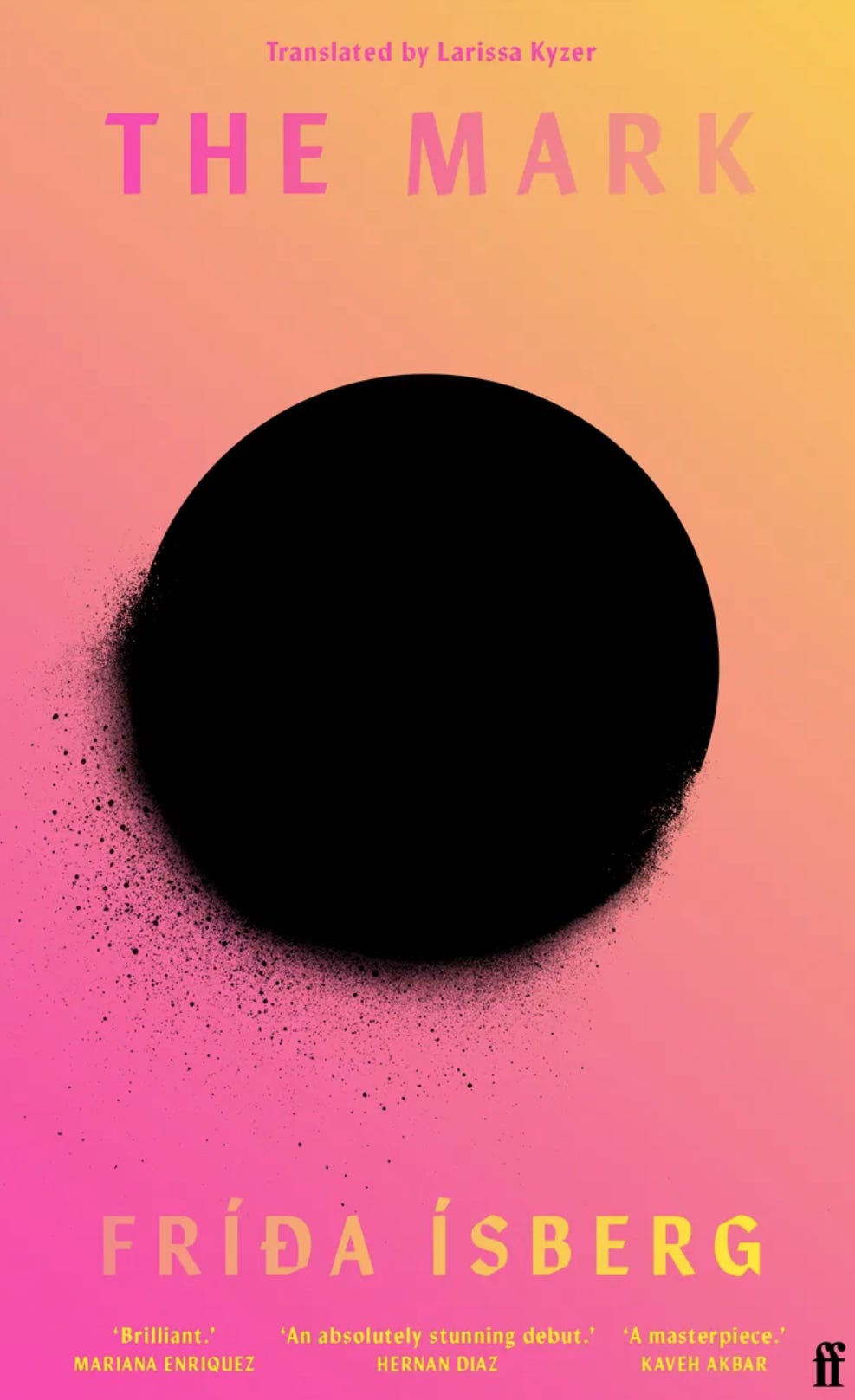The Mark by Fríða Ísberg
Empathy or Control? The Chilling Consequences of Scoring Humanity
Can you really measure a person's capacity for empathy, or does empathy lie in the spaces between what can be seen?
Can empathy be evaluated in a clear, objective way, like intelligence or other measurable traits. Is it possible be reduced to a number or score or is it more subtle, existing in intangible moments that are hard to capture or define?
This question lies at the core of Fríða Ísberg’s debut novel, The Mark, exposing the dangers of a society that relies on technology to quantify humanity. Set in a near-future Reykjavik, The Mark imagines a society where an “empathy test”- designed to promote societal harmony – becomes a tool of division and discrimination. Citizens are sorted into the "marked" and the unmarked, with those who fail stripped of their rights and dignity.
The novel follows four characters, each grappling with the consequences of this marking system. Through their stories Ísberg describes how empathy, once considered a builder of trust and understanding, becomes a weapon to control and segregate. As friendships dissolve, marriages crumble, and families strain under this dehumanizing regime, the novel shows how supposedly good intentions can pave the way for authoritarian control.
What makes The Mark particularly unsettling is how familiar it feels. Though speculative, Ísberg’s world mirrors our own, where algorithms, biometric data and an increasing reliance on technology govern lives, predicting behaviours and limiting opportunities. In this near-future society, trust in human judgment has been replaced by blind faith in an impersonal system, and citizens willingly sacrifice freedom for the illusion of safety. But when a society prioritizes safety and conformity above all else, it becomes authoritarian. The result is a society fractured by paranoia, where fear of anything that is different or outside the norm grows stronger, leading to greater divisions and increased discrimination against those who are seen as "different."
Fear is the best leash. Once you’ve convinced them they’re safer in the cage, they’ll stop trying to leave.
The book also engages deeply with issues of gender and power. Two female characters—a teacher stalked by her ex and a woman facing workplace harassment—expose the systemic failures of a society that claims to measure empathy, yet ignores the real dangers women face. Men who pass the test continue to wield power, shielded by the very system that was supposed to enforce accountability. Ísberg’s critiques this hypocrisy, noting: "It's not the technology that's dangerous, but the hands that control it."
What makes The Mark especially impactful is its emotional depth. Ísberg’s prose is as cold and spare as the Icelandic landscape, yet there is a deeply personal layer to the characters' struggles. Through their stories, the novel examines how societies label and divide individuals, with one character poignantly observing, “We are all marked in one way or another. The only difference is who gets to decide what that mark means.”
The Mark is more than a dystopian novel—it’s a timely reflection on our present, where technology increasingly shapes our understanding of humanity. As we close the book, we’re left with a question: How much control should we allow faceless systems to hold over our lives?




